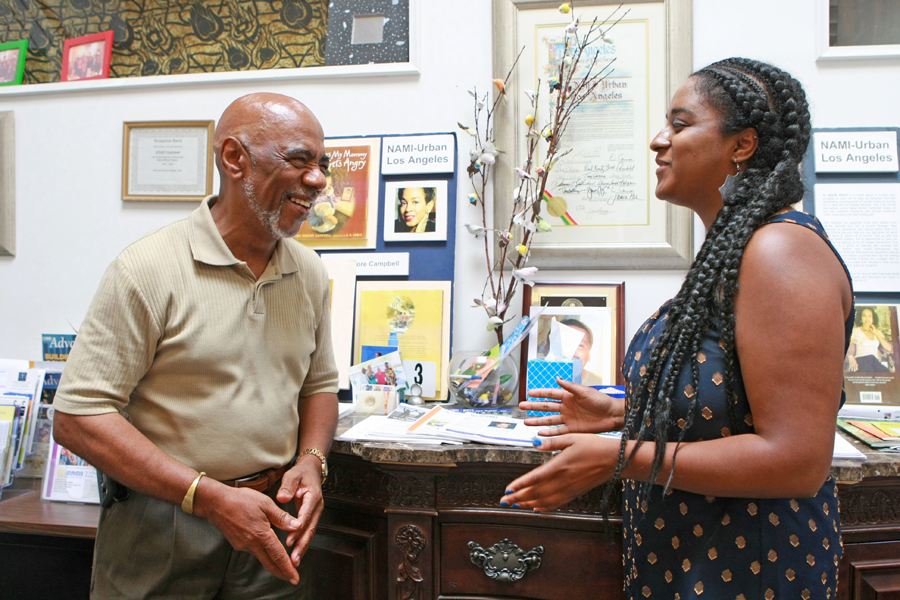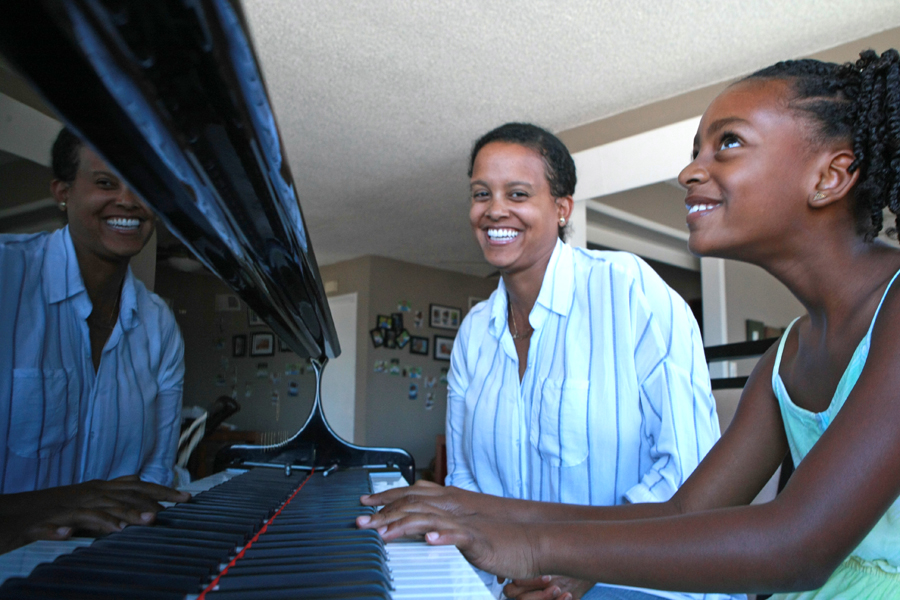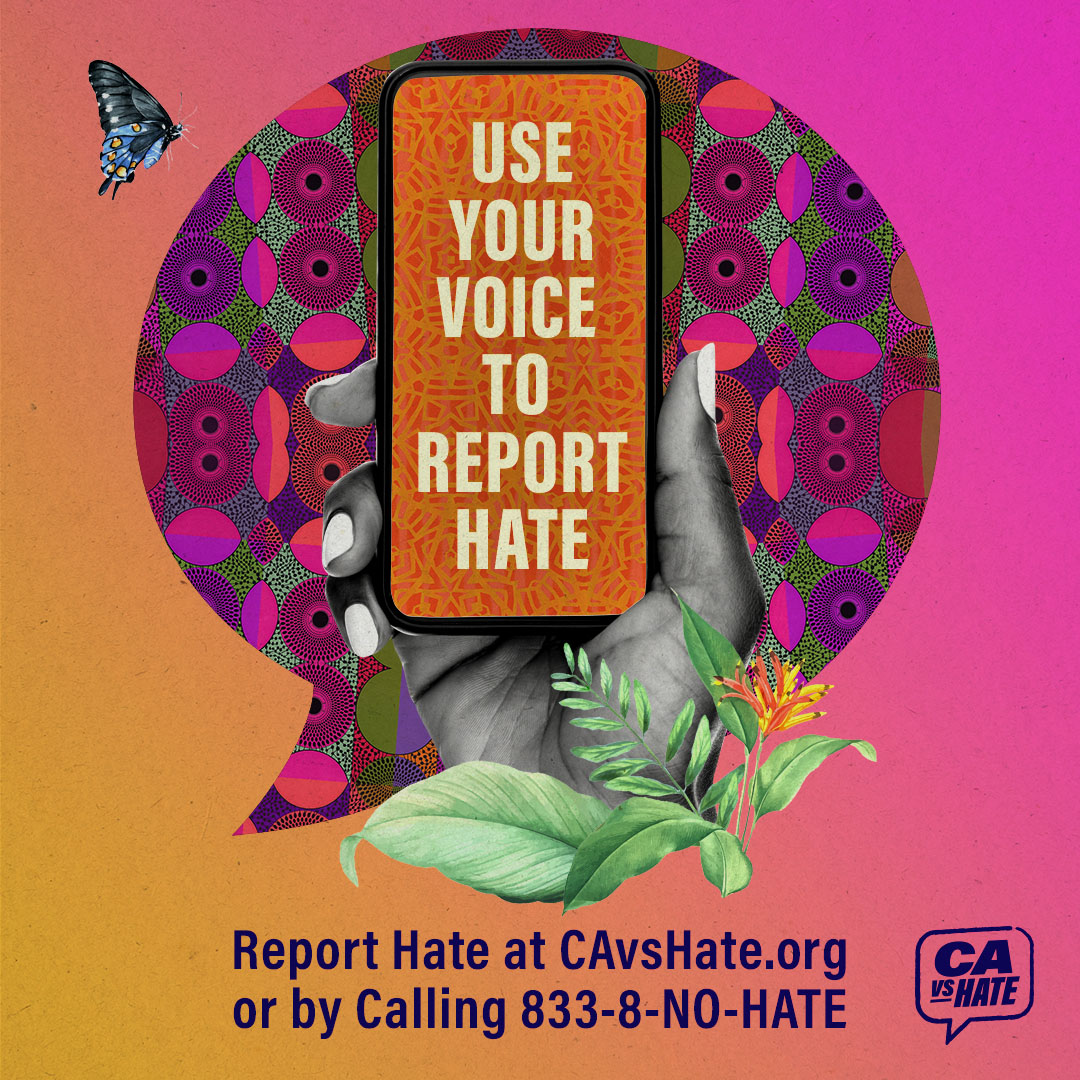This organization offers counseling not only to people diagnosed with mental issues, but also to their family members and caregivers as well.
By Megan Reed
The National Alliance of Mental Illness (NAMI) promotes recovery for people who are affected by mental illness, and they strengthen the bonds within families who deal with difficult issues.
The organization’s local chapter, NAMI Urban L.A., located in Leimert Park Village, offers services to people who have mental illness, and just as important but often overlooked, family members who are also affected.
“Unfortunately families don’t get much in the way of support,” said Harold Turner, director of programs at NAMI Urban L.A. “The reasons are quite simple. Nobody gets paid to do it. That’s the niche that we fill. As family members, all that’s required for membership is that you love somebody who has a mental illness.”
In many communities of color, people tend to not seek medical attention, especially in cases of behavioral health issues.
“We have highly clinical technical terms like ‘touched’ or ‘special,’” Turner said sarcastically. “The things that we accept as normal is frightening, and there is shame in seeking help because of the stigma. Those are the things that we have to remove. The larger question that we’re trying to answer for people, is exactly what do you mean when you say that somebody is mentally ill? What’s the biological basis for making that statement? How is their body different from mine? That’s the question that we try to answer for families.”
Many people do not have a good understanding of mental illness, which makes it difficult for them to find help for their family members who are affected by it.
“If you can’t convince your family member to get help, then you get help so that you can better deal with them,” Turner said. “You have to be able to walk the talk. You’re telling them that they need to get help, that they need to get therapy, that they need to get medication, and convince them to take it. You need to engage into self care so that you can take care of yourself so you’re able to help them when they’re ready. Eventually people (who have mental illness) are going to decide that they want more out of life than what they’re getting. If you’re already burned out, you’re not going to be of any use when they need you the most.”
Marguerite Ferrera, who is the school based programs outreach coordinator for NAMI Urban L.A., has dealt with her own mental illness in the past. Her mother sought out help at NAMI Urban L.A. on her behalf, which allowed the mother to help her daughter.
“It gave my mother such a great understanding of mental health and mental illness, learning how the brain functions, and how to be empathetic to your loved one,” Ferrera said. “How to reach out for support with extended family, or with a church. It was really life changing for her, and she was able to translate that within me.”
NAMI Urban L.A. has a family-to-family program, which Ferrera’s mother took. The 12-week education program gives families a framework for understanding what mental illness is and what it isn’t. It is designed for parents, children, and caregivers.
“The program alleviates some of the apprehensions that they might have about feeling that they may have caused the illness,” Turner said. “We also go into a lot of the issues of dealing with the schools and what rights you have as a parent.”
There is a peer-to-peer class, which is for people diagnosed with a mental illness.
“I took peer-to-peer, and it was empowering to be around other people who are facing the same thing,” Ferrera said. “I learned of people who had been in jail, or hospitalized several times. I had only been hospitalized once. So it gave me perspective that my experience is not as bad as I thought it was.”
The 10-week class taught Ferrera how to mentally take care of herself.
“That could be walking, doing yoga, or listening to music,” she said. “And how can we de-stress to avoid going to the emergency room, or the psychiatric ward. It was very much about prevention, and how can we help ourselves.”
Turner said that about 70 percent of people who are diagnosed with a mental illness can go on to live a productive life after the first round of treatment. For the other 30 percent, he said that some of them will recover with additional treatment. But he made it clear that a person should not be defined by their mental illness.
“You’re not your diagnosis,” he said. “That’s something you manage. Just like a diabetic, you don’t say ‘hi, I’m Joe the diabetic.’ Just like you don’t say, “hi, I’m John the schizophrenic.’ That’s not the central point of your life. You have to take care of that, but that’s not who you are.”
“I can say that if it weren’t for NAMI, I wouldn’t be as far along as I am,” Ferrera said.
Contact NAMI Urban L.A. at (323) 294-7814, email them at This email address is being protected from spambots. You need JavaScript enabled to view it., or visit their website at www.namiurbanla.org.
Piano Lessons for children and adults Sara Araya (323) 702-4191 www.saraaraya.com. Mention the LA Standard and get the first lesson free!
Plan your next event with Bella Dawn, www.belladawnplanning.com














